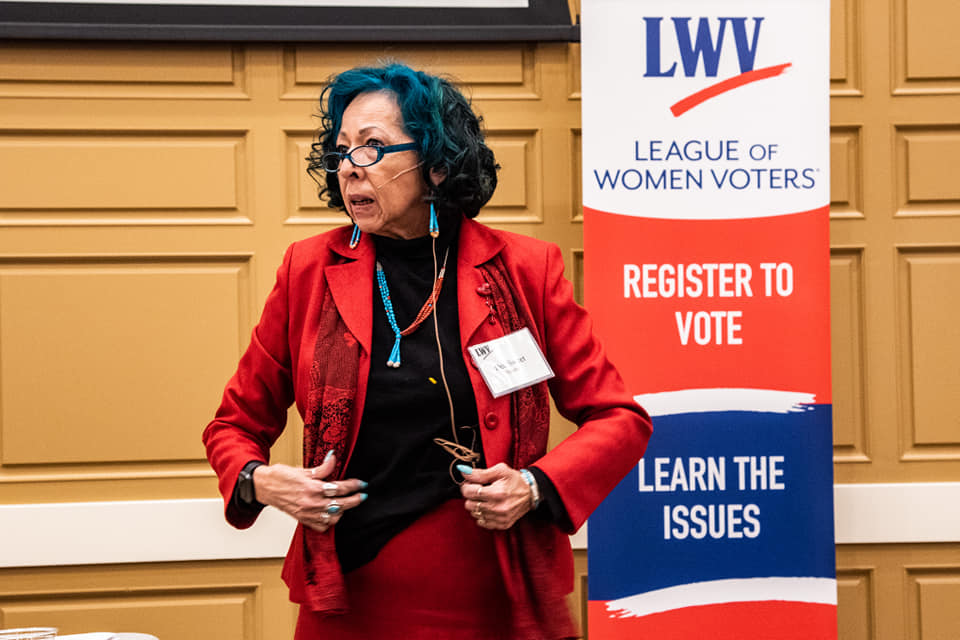
The League of Women Voters of Dane County hosted a public forum on voting issues within in Native American community Wednesday night, as part of their Making Democracy Work series.
The forum, held at Capitol Lakes on West Main Street, featured activists Denise Sweet and Anjali Bhasin. Both presented stories and statistics about tribal communities and different struggles they face regarding voting.
Sweet, who is a member of the Ojibwe Nation, is an environmental activist and First Nations organizer. She also works with the Wisconsin Conservation Voices, an organization that aims to protect public health and natural resources in Wisconsin. Through that organization, she brings the voice of First Nations communities to their campaigns.
In her presentation, Sweet first explored how democracy became a fundamental aspect of American values and the role First Nation communities played in that. She then discussed the current struggles those communities were facing in regards to voting. Part of those struggles, she said, came from years of Native communities being forcefully relocated, which partially dismantled their cultural identity.
“As a First Nations organizer,” she said, “I go into different communities and I find that same struggle, that same wanting to find that place where you belong once again. On the other hand as a First Nations organizer, I hear ‘you want to talk to us about voting? When all this time we’re trying to work our way back to a place where we feel safe and secure?”
People want to participate, Sweet said, but on their own terms. For her, part of helping improve access to voting included removing barriers Native communities felt in regards to voting.
“If we did mobilize ourselves, if we did remove those barriers and those impediments to access, if it were a fair experience at the polls, it makes a difference,” she said.
Bhasin, the civic engagement director at the Wisconsin Conservation Voices, then followed up with sobering information about voter engagement with Native communities. She presented a 2017 Pew Research survey, in which 62% of unregistered voters and 60% of registered voters were never asked to register.
“We’re really trying to move that model,” she said. “Really trying to think about not only how do we do voter registration and partner with groups this year, but how do we, in the long term really engage with communities of color and what does that look like? And how can it be mutually beneficial and impactful for everybody?”



